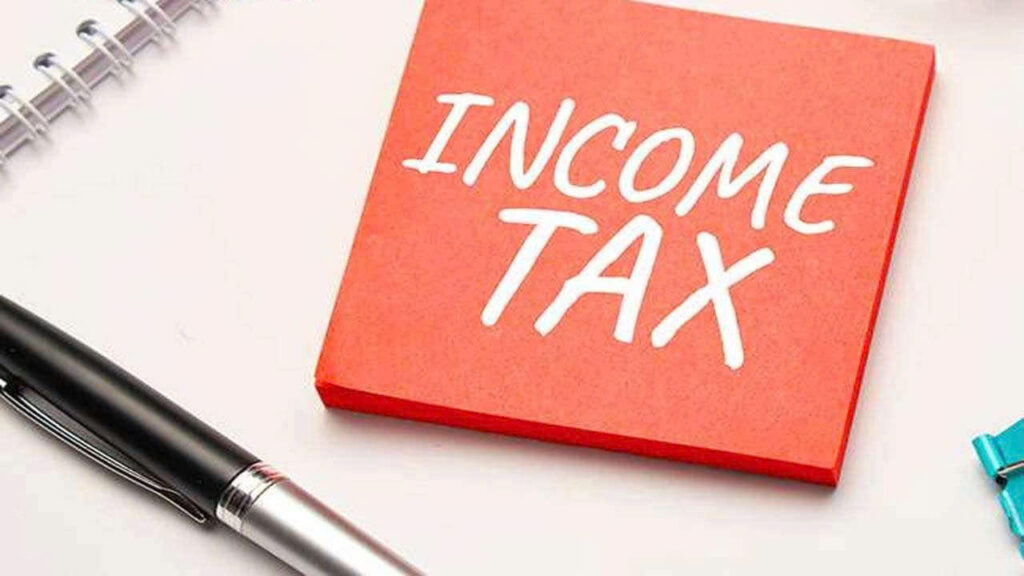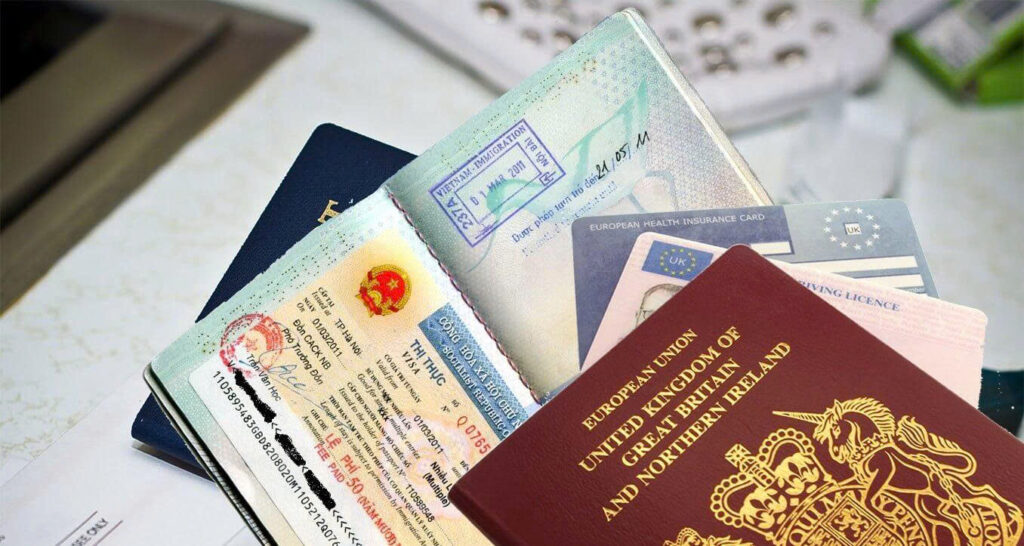Living the dream of a digital nomad in Vietnam – the vibrant culture, delicious food, stunning landscapes, and affordable living. It’s an alluring prospect, but amidst the excitement of remote work by the beach or in a bustling city, one crucial question often arises: “What are my tax obligations as a digital nomad working remotely in Vietnam?”
Understanding the tax implications is paramount for a smooth, legal, and stress-free stay. This guide will break down the essential tax rules for foreign remote workers in Vietnam, helping you navigate the complexities and ensure compliance.
Understanding Tax Residency in Vietnam for Foreigners: The Cornerstone of Your Tax Obligations
The first and most critical step in determining your tax liability in Vietnam is to establish your tax residency status. This isn’t always straightforward, especially for those who travel frequently.
The 183-Day Rule and Its Nuances for Tax Residency
For tax residency in Vietnam, the “183-day rule” is the fundamental factor.

- What Counts as a “Day of Presence”? You are generally considered a tax resident of Vietnam if you are physically present in Vietnam for 183 days or more within a single calendar year (January 1st to December 31st) or within 12 consecutive months from your arrival date.
- Crucial Detail: Days of arrival and departure count as full days. Any physical presence in Vietnam, regardless of the reason (work, tourism, transit), contributes to the 183-day count.
- Implications of Exceeding 183 Days If you cross this threshold, you are typically deemed a tax resident for that entire tax year. This means your worldwide income (regardless of where it’s earned or paid) may become subject to Vietnamese Personal Income Tax (PIT).
Distinguishing Tax Resident vs. Non-Resident Status
Your tax status fundamentally changes how your income is taxed.
- Tax Resident: Generally taxed on worldwide income at progressive rates (up to 35%).
- Non-Resident: Generally taxed only on Vietnam-sourced income at a flat rate of 20%.
Centre of Vital Interests and Other Residency Considerations
While the 183-day rule is primary, other factors can sometimes be considered by the General Department of Taxation (GDT), especially in complex cases or disputes. These include:
- Having a permanent dwelling in Vietnam (rented or owned).
- Your family’s residence in Vietnam.
- Your economic interests (e.g., local bank accounts, investments).
This highlights the importance of keeping detailed records of your entry and exit stamps, flight tickets, and accommodation agreements.
Personal Income Tax (PIT) for Digital Nomads in Vietnam: What You Need to Know

Once your residency status is determined, understanding PIT is the next critical step.
Taxable Income: What’s Included for Digital Nomads?
For tax residents, taxable income is broadly defined and includes:
- Worldwide Income vs. Vietnam-Sourced Income
- Worldwide Income: This means all income, regardless of where your clients are located, where the work is performed (even if you occasionally work outside Vietnam), or where your payment is received. This applies if you are a Vietnamese tax resident.
- Vietnam-Sourced Income: This refers to income directly earned from activities or services performed within Vietnam, even if the client is foreign. This is typically applicable to non-residents, but also forms part of the worldwide income for residents.
- Specific Examples of Taxable Income for Digital Nomads
- Salaries, wages, remuneration from remote jobs.
- Income from independent professional services (freelancing, consulting).
- Income from business activities (if you’re a sole proprietor or have a local entity).
- Certain investment incomes (e.g., interest, dividends from Vietnamese sources).
Vietnam’s Progressive Tax Rates for Foreigners (for Tax Residents)

Vietnamese PIT for tax residents uses a progressive scale, meaning higher earners pay a higher percentage of their income in tax.
- Detailed Breakdown of Income Brackets and Corresponding Rates (Note: Specific rates and brackets can change. Always verify with official sources or a tax professional.)
- Up to VND 5 million: 5%
- Over VND 5 million to 10 million: 10%
- Over VND 10 million to 18 million: 15%
- Over VND 18 million to 32 million: 20%
- Over VND 32 million to 52 million: 25%
- Over VND 52 million to 80 million: 30%
- Over VND 80 million: 35%
- Calculation Examples for Various Income Levels (Example: For monthly income of VND 40 million as a resident, tax would be calculated progressively across brackets.)
Deductions and Exemptions You Might Be Eligible For
Tax residents may benefit from certain deductions, reducing their taxable income:

- Personal Deductions
- For the taxpayer: Currently, VND 11 million/month (or VND 132 million/year).
- For qualified dependents: Currently, VND 4.4 million/month per dependent.
- Other Permissible Deductions
- Compulsory social insurance, health insurance, and unemployment insurance contributions (if applicable).
- Voluntary retirement fund contributions.
- Charitable contributions to eligible organizations.
PIT for Non-Residents (Flat Rate)
If you are a non-resident, your Vietnam-sourced income is subject to a flat tax rate.
- When This Applies Typically for short-term visitors or those who do not meet the 183-day residency rule.
- The Flat Rate Percentage A flat rate of 20% is applied to your Vietnam-sourced income.
Navigating Double Taxation Agreements (DTAs) with Vietnam: Avoiding Being Taxed Twice

One of the biggest concerns for digital nomads is the risk of being taxed in both their home country and Vietnam. Double Taxation Agreements (DTAs), also known as Tax Treaties, aim to prevent this.
What is a DTA and How Does it Work?
- Purpose and Benefits of DTAs DTAs are bilateral agreements between two countries to prevent the same income from being taxed twice. They provide rules for allocating taxing rights between the two states.
- Key Articles Relevant to Digital Nomads Often, articles on “Independent Personal Services” or “Permanent Establishment (PE)” are crucial. If your activities in Vietnam do not create a PE, you might only be taxable in your home country under certain DTA provisions.
Common DTAs Relevant to Digital Nomads (e.g., US, UK, Australia, EU Nations)

Vietnam has a vast network of DTAs with many countries worldwide. It’s essential to check if Vietnam has a DTA with your home country and to understand its specific provisions.
- Specific Examples of How DTAs Might Apply Depending on the DTA, income from independent services performed in Vietnam by a resident of another contracting state might only be taxable in that other state, unless you have a “fixed base” regularly available to you in Vietnam, or you spend a certain number of days (e.g., 183 days) in Vietnam within a 12-month period.
- Importance of Obtaining a Certificate of Tax Residency from Your Home Country To claim benefits under a DTA, you will almost certainly need to provide a Certificate of Tax Residency from your home country to the Vietnamese tax authorities.
Claiming Tax Credits and Exemptions Under a DTA
- Process and Documentation Required This often involves submitting specific forms and documentation to the Vietnamese tax authorities to prove your residency in another country and to claim the DTA benefits. The process can be complex and may require professional assistance.
Tax Compliance and Filing Procedures in Vietnam for Foreigners

Once you understand your status and obligations, knowing how to comply is next.
Obtaining a Tax Identification Number (TIN)
- Who Needs One and How to Apply If you are earning Vietnam-sourced income or become a tax resident, you will likely need a Tax Identification Number (TIN). This is typically obtained through your employer (if any) or directly from the local tax department.
Monthly vs. Annual Tax Declarations
- When and How Often to File PIT can be declared monthly, quarterly, or annually, depending on your income level and type. For many freelancers, quarterly or annual declaration is common.
- Overview of the PIT Finalization Process At the end of the tax year (typically by March 31st of the following year), tax residents must file an annual PIT finalization declaration, reconciling their total income and deductions for the year.
Required Documents and Payment Methods

- List of Necessary Paperwork
- Copy of passport and visa.
- Proof of income (contracts, invoices, bank statements).
- Proof of deductions (if applicable).
- Certificate of Tax Residency from your home country (for DTA claims).
- Options for Making Tax Payments Payments are usually made via bank transfer to the state treasury or through authorized banks.
Other Potential Tax Considerations for Digital Nomads in Vietnam
Beyond PIT, keep an eye on these:
Social Security and Health Insurance Contributions
- When Are Foreigners Obligated to Contribute? If you are employed by a Vietnamese entity, you are generally subject to compulsory social and health insurance contributions. For self-employed digital nomads, these are typically not compulsory unless you choose to register voluntarily.
- What Are the Benefits/Drawbacks? Compulsory contributions provide access to Vietnamese public healthcare and social welfare benefits.
Value Added Tax (VAT) for Freelancers/Business Owners

- When Might a Digital Nomad Be Subject to VAT? If your freelance activities reach certain revenue thresholds and are considered business activities under Vietnamese law, you might be required to register for VAT and pay VAT on your services. This is complex and often applies to those operating a formal business presence.
- Registration Thresholds and Implications (Specific thresholds and requirements vary and should be checked with a local expert).
Corporate Income Tax (CIT) If You Register a Business
- Brief Mention for Those Considering Formalizing Their Presence If you decide to establish a formal company or a representative office in Vietnam, your entity will be subject to Corporate Income Tax on its profits. This goes beyond the scope of individual digital nomad taxation but is a potential future step.
Risks of Non-Compliance and Penalties for Digital Nomads
Ignoring tax obligations can have serious consequences.
Financial Penalties for Late Filing or Underpayment

The Vietnamese tax authorities impose fines and late payment interest for non-compliance, which can quickly accrue.
Potential Impact on Visa Status and Future Stays
Non-compliance with tax laws can negatively impact your immigration status, making future visa applications or extensions difficult. In severe cases, it could lead to deportation.
Seeking Professional Tax Advice in Vietnam: Your Best Course of Action
Given the complexities and potential changes in tax laws, seeking professional guidance is highly recommended.
When to Consult a Tax Advisor or Accounting Firm
- If you’re staying longer than 3 months.
- If your income is substantial.
- If you have unique income streams or investments.
- If you want to fully leverage DTA benefits.
- If you’re unsure about your residency status.
Tips for Choosing a Reputable Tax Professional

Look for firms or individuals specializing in international taxation and expat tax services in Vietnam. Check their credentials and reviews.
Important Disclaimers: This Is Not Legal or Tax Advice
This information is provided for general guidance only and does not constitute professional legal, tax, or financial advice.The tax landscape is dynamic. Regulations, interpretations, and rates can change. The specifics of your situation (nationality, income source, duration of stay, existing tax treaties) can significantly alter your tax obligations. Always verify information with official government sources and consult a qualified tax professional in Vietnam or your home country for personalized advice tailored to your specific circumstances.
RELATED: Digital Nomad in Vietnam: Best Cities, Costs & Tips
Vietnam continues to be an incredible destination for digital nomads, offering a unique blend of vibrant culture and economic opportunity. However, understanding and proactively addressing your tax implications is vital for a secure and compliant remote work journey. By familiarizing yourself with residency rules, PIT regulations, DTA benefits, and compliance procedures, you can ensure your Vietnamese adventure is as smooth and rewarding as possible. Don’t let tax worries overshadow your experience – empower yourself with knowledge and, when in doubt, seek expert guidance.
















